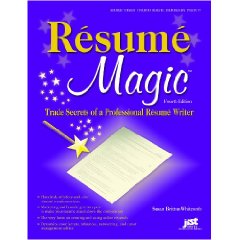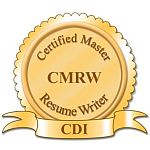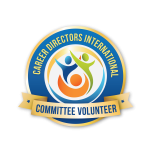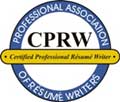Career Collective post: Once every month or so, a group of career professionals blog on a subject topical and timely for a job seeker. We’ll post our thoughts on our own blog and link to the post of our colleagues on the same topic.
This month’s topic: “Preparing for success…What should job seekers do now to prepare for interviews?” Sometimes a long-time job search winds up in an interview scheduled with little lead time. Responses from others contributors are linked at the end. Follow the hashtag #CareerCollective on Twitter.
I was having lunch with a friend a few years ago when a former coworker of hers entered the restaurant. It had been years since they worked together or even seen each 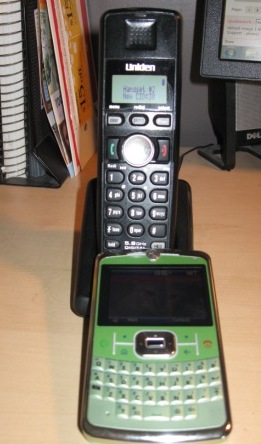 other. They exchanged hugs and “how ya beens” quickly catching up on each other’s lives.
other. They exchanged hugs and “how ya beens” quickly catching up on each other’s lives.
The former coworker (we’ll call her Janet) shared that her family was moving to Raleigh in a few weeks and she would soon be looking for a new job in a new town. What she said next floored me. “I’m so glad I ran into you. Tell ‘Dr. Bob’ I’m going to use him as a reference when I start filling out applications next month.” Up to this point, I sat back and enjoyed watching two former medical office coworkers get reacquainted. It crossed my mind to hand her my card and suggest she’d need a good resume to launch this search, but didn’t feel it proper to impinge on this reunion with a sales pitch for my services, so I remained quiet.
Hearing Janet arbitrarily decide to it was OK to “tell” someone she was going to use them as a reference and relay that message through a third party was more than I could take. I joined the conversation. I asked Janet if she’d spoken with Dr. Bob recently.
J: “Oh no. It’s been years since I even thought about that job. Running into “Diane” {my friend} reminded me he’d be a good person to use for a reference.”
Me: So how long has it been since you’ve had contact with Dr. Bob?
J: Oh, about 10 years?
Me: And you’re sure he’ll remember you?
J: No way he’d forget me.
Me: And you don’t think he’d mind if you used him as a reference, without his permission?
J: He’d be happy to do this for me.
Do you see the red flags and assumptions in this approach?
I told Janet I was a resume writer and gently explained how this approach to listing references wasn’t in her best interest. She listened politely then interjected, “Gee. I guess you’re right. I won’t use him as a reference … unless I decide to call him. Thank you.”
On the way home, my friend said, “I’m so glad you stopped her from giving Dr. Bob’s name for a reference. She seems to forget, her last day at work, she pulled a bunch of Dr. Bob’s partner’s client file, documented how she disagreed with Dr. Sue’s methodology and diagnosis, indicating what she thought “should” have been done for these patients. She left that tall stack of folders on Dr. Bob’s desk. He wasn’t happy the next morning when he came in to the pile on his desk with “opinions” now documented as part of the client’s chart. There’s no telling what he would have said if someone called asking about her.”
Recently I worked with a client who didn’t get along with her boss. She asked if I would do a reference sheet for her too. I agreed and instructed her to put together a list of people and I’d format it to match the rest of her career documents. She paused, “I really don’t want to use my current boss as a reference.” I said, “OK. Don’t then.” She continued, “But don’t I ‘have’ to list his name? Isn’t that what you’re ‘supposed’ to do?”
Another client was convinced she “had to have” a reference from every place she worked and was stressing because some earlier employers were no longer in business and she’d not kept up with someone from every place she’d worked for the last 20 years.
It’s time to take the “supposed to dos” out of the equation. Following are some reference guidelines (in no particular order) to help you avoid the mistakes listed above and ensure your references help, not hinder your search:
1. Don’t use someone as reference unless you’ve asked permission and updated them on your career goals. IF they are called, you want them to support and enhance your search. They can’t do that if they don’t know you’ve given out their name, don’t remember you or don’t what you seek.
2. Unless you are 100% sure of what someone will say about you, don’t use them as a reference – period. “She does a great job … when she shows up for work.” is not a good reference
3. Give your references a copy of your current resume. Coach them on the points you’d like reiterated if they are called. This is your search. You know what your potential employers are looking for because you’ve done your homework. Don’t expect your references to know the nuances of your search. Tell them.
4. Touch base with your references to let them know how the search is going. Keep them in the loop if you think there’s a chance they might get called after a promising interview. Job searches can last six to eight months or longer. Stay in touch during that time so they’re reminded you’re searching.
5. If everyone knows you by one name, but you’re conducting your search using your formal given name, be sure to let your references know that while they know you as “Bobby Smith”, they’ll get a call asking about “Todd Robert Smith.” Don’t assume they’ll know you use middle name and a nickname of that to boot. Tell them.
6. Don’t assume that the only reference checking a potential employer will do is from the list you hand them. Employers check your online presence. They employ third-party agencies to check backgrounds. You have no control over how they’ll check on you or who they’ll contact in the process. Take control of the one small piece you can influence by having well-prepared individuals waiting in the wings to sing your praises.
7. Don’t send your reference list with every single application. Respect your references. Only give out their information if asked and only for positions you truly want. They’re doing you a favor. Don’t wear them out with calls about jobs you have no intention of taking. And don’t overload a potential employer with information they didn’t request either.
8. Leave “References available upon request” off the bottom of your resume … of course they are. No need to state the obvious.
9. Have a list of references readily available. Bring a hard copy of them with you to the interview. If you’re asked for references, you want to avoid that “deer in the headlights” look and you surely don’t want the added stress of scrambling to get everyone on the same page at the last minute. You may never be asked for them, but take the time to gather and prep them, just in case.
10. Three to five professional references usually suffices, but if asked for more or less, follow the hiring company’s request. And remember, “professional” doesn’t necessarily mean paid. Don’t overlook the volunteer connections you’ve made along the way. Some companies want personal references too. You spouse / significant other is not the person to use in this instance. Select a non-related, long-time friend.
Is it crazy for company to use a candidate-provided list to verify the information the candidate provided? Personally, I think so, but it’s an expected piece of the hiring process. Use it to your best advantage. Dump the “shoulds” and arbitrary “have to’s” from the process and ensure you have people willing to actively and positively participate in your search. And when all is said and done, don’t forget to the take the time to THANK THEM.

Here’s what my colleagues have to say:
Sit Down and Panic. The Interview is Yours @GayleHoward
How to Stand Out in a Job Interview @heathermundell
Avoid These Reference Mistakes @DawnBugni
Unspoken Secrets of Job Interviewing Prep: How Your Nonverbal Presentation and Behaviors Impact the Impression You Make @KatCareerGal
Prep for Interviews Now: Snuff out the Elephant in the Room Later! @chandlee << not working yet
What Should Job Seekers Do Now to Prepare for an Interview @erinkennedycprw
Take a Ride in the Elevator Before You Interview @barbarasafani
Are You Ready for the Elephant in the Room? @WorkWithIllness
“Tell Me About Yourself” (Oh, Yikes!), @KCCareerCoach
The job interview as a shared narrative @WalterAkana
Prepare your references for job search success @Keppie_Careers
No Pain No Gain In Job Search and Interview Prep @ValueIntoWords
Job searching? Take a cue from the Boy Scouts @LaurieBerenson
Preparing for Career Success Starts with Interviewing the Employers @JobHuntOrg
 everyday, assume everyone else understands and no one says “Huh”? When did it become fashionable to “talk at” each other using letters and jargon and not “speak with” each other in plain, simple English?
everyday, assume everyone else understands and no one says “Huh”? When did it become fashionable to “talk at” each other using letters and jargon and not “speak with” each other in plain, simple English?






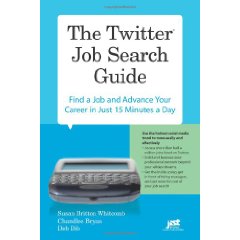 Your Career in Just 15 Minutes a Day
Your Career in Just 15 Minutes a Day